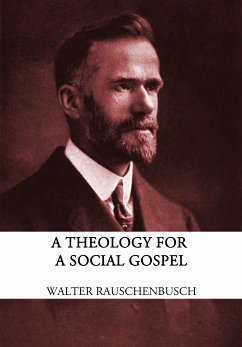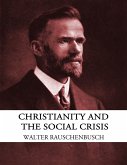The Taylor Lectures are expected to deal with some theme in Doctrinal Theology, but the Faculty in their invitation indicated that a discussion of some phase of the social problem would be welcome. I have tried to obey this suggestion and still to remain well within the original purpose of the Foundation by taking as my subject, "A Theology for the Social Gospel."
Of my qualifications for this subject I have reason to think modestly, for I am not a doctrinal theologian either by professional training or by personal habits of mind. Professional duty and intellectual liking have made me a teacher of Church History, and the events of my life, interpreted by my religious experiences, have laid the social problems on my mind. On the other hand, it may be that the necessity of approaching systematic theology from the outside may be of real advantage. Theology has often received its most fruitful impulses when secular life and movements have set it new problems.
Of the subject itself I have no cause to speak modestly. Its consideration is of the highest importance for the future of theology and religion. It bristles with intellectual problems. This book had to be written some time, and as far as I know, nobody has yet written it. I offer my attempt until some other man comes along who can plough deeper and straighter.
I wish to assure the reader who hesitates in the vestibule, that the purpose of this book is wholly positive and constructive. It is just as orthodox as the Gospel would allow. I have dedicated it to an eminent representative of the older theology in order to express my deep gratitude for what I have received from it, and to clasp hands through him with all whose thought has been formed by Jesus Christ.
My fraternal thanks are due to my friends, Professor James Bishop Thomas, Ph.D., of the University of the South, and Professor F. W. C. Meyer of Rochester Theological Seminary, who have given a critical reading to my manuscript and have made valuable suggestions.
Dieser Download kann aus rechtlichen Gründen nur mit Rechnungsadresse in A, B, BG, CY, CZ, D, DK, EW, E, FIN, F, GR, H, IRL, I, LT, L, LR, M, NL, PL, P, R, S, SLO, SK ausgeliefert werden.









